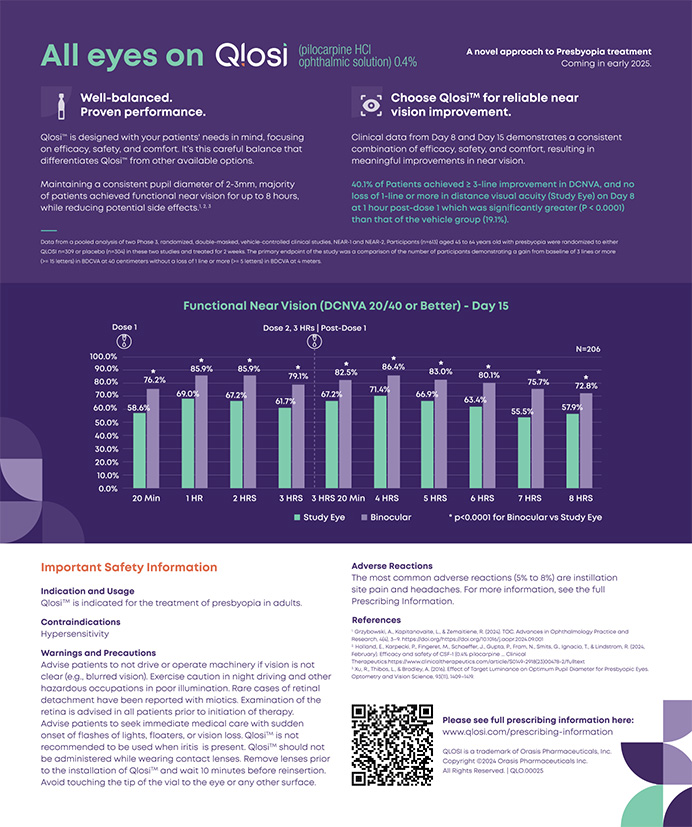
By the time you read this, it is likely that you, your staff, and some of your patients have received one of the COVID-19 vaccines. For me, getting the vaccine renewed my sense of hope and optimism. Most of us are lucky to have a healthy and solvent practice as we enter the presumed back slope of this pandemic. Some among us, however, may have lost a loved one or suffered devastating financial blows during the pandemic. We must remember to look outside of our microcosm of ophthalmology to the broader impact of COVID-19 all around us. The psychological effects of this global pandemic on our society are far more significant than the eye diseases left untreated amid it.
Early in the pandemic, the few cataract consults I conducted were mostly for patients in dire need of surgery such as those with bilateral white cataract, hand motion vision, and phacomorphic glaucoma. It felt more like a mission trip than a normal day at work. With time and hard work, however, our practice adapted and positioned itself as a safe place to be. We have embraced routine eye care and somewhat normal operations.
Things are different, and might I go as far as to say better in some aspects? Unexpected life changes often open new doors of opportunity, and the challenges we’ve experienced during the pandemic have some silver linings. For example, historically, the biggest complaint from patients seen at my practice was office wait times. The improvements we made for social distancing, including creating a cell phone waiting lot, decreasing patient movement from room to room, and embracing telemedicine for tasks such as patient history/intake procedures and day 1 postoperative visits, have dramatically changed our practice flow for the better. We will continue to leverage many of these modifications post-pandemic. We also must function with less staff now, which forced us to streamline processes for certain aspects of patient care, including surgical counseling, preoperative testing, and OR support. This has all reduced our overhead. We are currently looking into ways to streamline our call center.
The premium refractive cataract surgery space, which has been a huge focus for many private practice surgeons and industry for the past decade, went sideways in 2020. Practice closures and community fears such as apprehension to leave home and concerns about personal finances through the pandemic, among other factors, led to a hard stop in refractive cataract surgery for much of the year. A mixed bag of experiences from colleagues around the country revealed a discombobulated landscape; some practices were severely impacted in both total cataract and refractive services volumes, some reported mild growth, and most fell somewhere in between. For me, surgical volume and refractive procedures in the fall months were spotty, but this winter, both are eerily normal.
One disruptive trend that may appear to have stalled under the pandemic (but continues to burn slowly) is practice consolidation and private equity (PE) acquisitions. PE firms seem somewhat immune to the pandemic and the financial modeling trends toward continued high valuations and an aggressive approach moving forward, as evidenced by multiple transactions in the past year. As a PE firm’s portfolio grows, it turns attention toward a sale to a larger firm—the so-called second bite. With current trends and the waning numbers of COVID-19 cases, I wouldn’t be surprised to see much more activity in the PE space.
I am impressed with how the ophthalmic industry has coped during the pandemic. In my experience, most companies are communicative and continue to bring new products to market. The pipeline is strong, and we will all need to catch up to the evolving technology landscape.
I know I am one of many anxiously awaiting the return of live educational formats. I agree with the seemingly universal consensus that Zoom learning is suboptimal.
I genuinely hope our field can emerge from this pandemic stronger, better, and ready to pick up where we left off. Ultimately, it is the decisions we make, both big and small, as individuals within the field that pave the road ahead.




